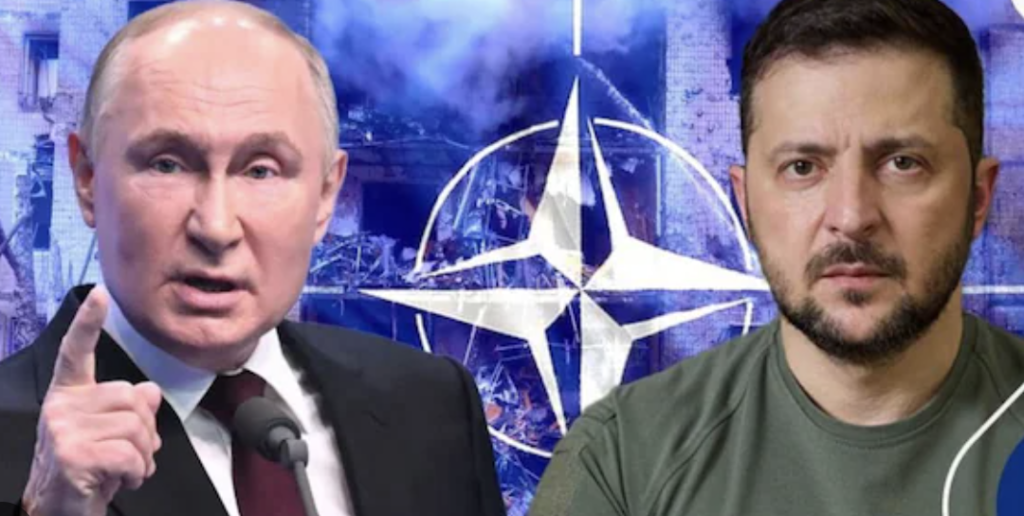As tensions continue to surge between Russia and NATO, Moscow has now leveled accusations at British diplomats, alleging that they are engaged in espionage activities within Russian borders. This accusation comes at a particularly sensitive time when the spotlight is already intensely focused on the influx of long-range Western weapons into Ukraine, which Russia claims are exacerbating the conflict.
Espionage Accusations from Moscow
In a dramatic escalation of diplomatic tensions, Russian officials have accused British diplomats of spying within Moscow and other key Russian cities. According to a statement released by the Russian Foreign Ministry, these activities include infiltrating sensitive areas and collecting classified information, all under the guise of diplomatic work.
“We have sufficient evidence that confirms these British nationals, purportedly diplomats, are engaged in activities far beyond their diplomatic remit,” the statement read. The ministry went on to emphasize that such actions further deteriorate the already strained relations between Russia and the United Kingdom.
Rising NATO-Russia Tensions
The accusations arrive amid an already-inflammatory backdrop of escalating tensions between NATO and Russia. The Western military alliance has been unwavering in its support for Ukraine, rallying behind the Eastern European nation by sending in long-range weapons, intelligence support, and various forms of military aid.

Russia has repeatedly described these actions as provocations, asserting that they compromise its national security and destabilize the region further.
Responses from the UK and NATO
In swift response to the allegations, the UK Foreign Office issued a categorical denial, declaring the accusations baseless and unfounded.
“The claims made by the Russian government are entirely fictitious and serve only to detract from the broader issues at hand,” said a UK spokesman.
Additionally, NATO issued a statement reiterating the alliance’s respect for international laws governing diplomatic activities.
Western Weapons: A Bone of Contention
Much of the current friction can be traced back to the ongoing debate over Western weapons systems being introduced into Ukraine. NATO countries, including the United States, the United Kingdom, and Germany, have supplied substantial lethal aid to Ukraine, arguing that it is essential for the country’s defence against Russian aggression.
On the other hand, Moscow argues that these weapons are harmful, potentially lengthening the conflict and raising the risk of a direct confrontation.
“These Western-supplied weapons are nothing but tools for further inciting the conflict,” said a Russian defence official.
International Reactions
European Union leaders have strongly backed the UK, aligning with NATO’s stance and dismissing Russia’s accusations as strategic distractions.
*b>”Russia must understand that their continued attempts to sow discord among Western allies will not succeed,” stated an EU spokesperson.
Meanwhile, in Washington, President Joe Biden held discussions with NATO leaders, reinforcing the United States’ unwavering support for Ukraine.
“Nothing will deter us from standing with our allies and supporting the sovereign right of Ukraine to defend itself,” Biden assured.
Keir Starmer’s Visit to Kyiv
Amid these tensions, the UK Labour Party leader, Keir Starmer, paid an official visit to Kyiv, reaffirming British solidarity with Ukraine. Starmer’s visit included meetings with key Ukrainian officials, and he used the opportunity to stress the importance of continued support from the international community.
“The UK’s commitment to Ukraine remains resolute. This is not just about supporting a nation in distress but about standing up for the principles of sovereignty, democracy, and international law,” Starmer declared during his visit.
Moving Forward
While the environment is undoubtedly tense, efforts are being made behind the scenes to defuse the situation. Diplomatic channels remain open, and there are ongoing talks of potential summits involving key players from both NATO and Russia. Such high-level dialogues aim to find common ground and explore avenues of conflict resolution.
In the face of these high-stakes tensions and espionage accusations, it’s evident that cooperation and dialogue are essential. The international community remains hopeful that through diplomatic efforts and a unified stance on international norms, a path towards peace and stability can be paved.
Ultimately, amid the clamour of accusations and counter-accusations, it is heartening to see continued efforts towards diplomatic dialogue. This remains a constructive step forward in a world increasingly defined by its divisions. The enduring hope is that no matter the frictions, the power of diplomacy and international cooperation will triumph.